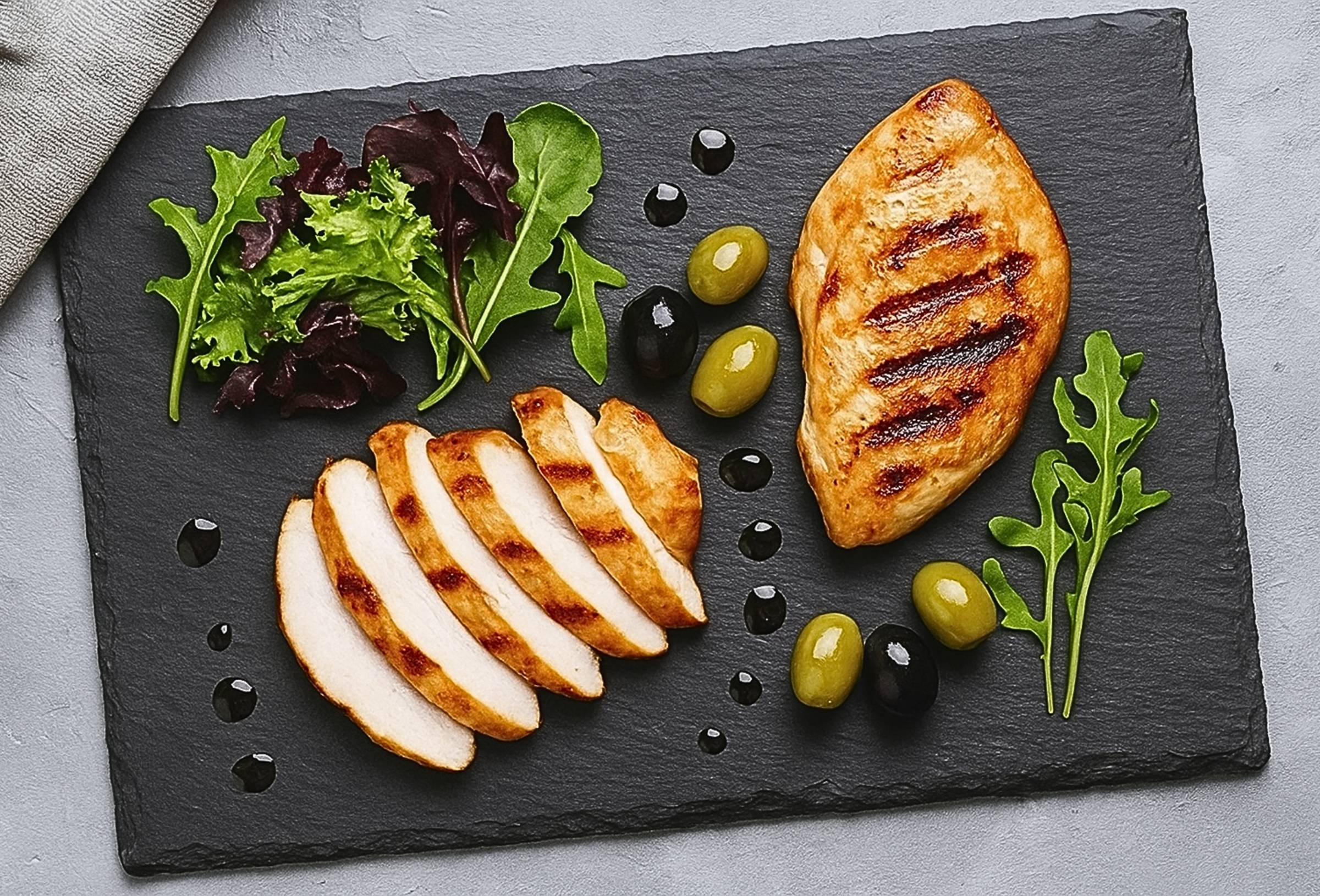Chicken contains high-quality protein, many vitamins, and minerals essential for the body. 100g of chicken provides about 143 kcal, including 17g of protein, 8.1g of fat, and no carbohydrates. Chicken is also rich in B vitamins, zinc, and selenium - substances that play an important role in energy metabolism, supporting the immune system, and protecting blood vessels.
Doctor Nguyen Anh Duy Tung, from the Nutrihome Nutrition Center, said that chicken contains about 28.4% saturated fat, which can contribute to increased bad cholesterol if eaten in excess. However, most of the fat in chicken is unsaturated fat, including 44.4% monounsaturated fat and 18.5% polyunsaturated fat, two groups of fats that are good for the heart when consumed in moderation. Compared to red meat like beef and pork, the cholesterol content in chicken is lower. Specifically, every 100g of chicken contains about 86mg of cholesterol, while beef contains about 90-100mg and pork can contain 110mg or more.
Doctor Duy Tung noted that not all parts of the chicken have the same nutritional value. Skinless chicken breast is the most suitable choice for people with high cholesterol because it is the leanest part, containing less saturated fat and cholesterol. Meanwhile, chicken skin and organs contain more fat, which can increase the total amount of saturated fat intake if eaten regularly.
 |
Pan-fried chicken breast with olive oil served with greens is very suitable for people who need to control blood fat. Photo: Phuong Thy
To control the absorption of bad fats, people with dyslipidemia need to choose lean meat, remove the skin, and prepare it correctly. Prioritizing steaming, boiling, pan-frying with olive oil, or grilling without oil helps retain nutrients while minimizing saturated fat and bad cholesterol.
Each time, people with high cholesterol should eat about 80-100g of lean, skinless chicken meat, two to three times a week depending on their calorie intake. Meals should be combined with green vegetables, whole grains, beans, mushrooms, and healthy fats to help control blood fat. Avoid combining chicken with foods high in bad fats such as margarine, cream sauces, cheese, or battered fried foods.
In addition to a reasonable diet, Doctor Duy Tung recommends that people with high cholesterol have regular health checkups and maintain a healthy lifestyle such as exercising for at least 30 minutes each day, controlling their weight, and avoiding alcohol and tobacco. Patients can supplement with natural extracts such as GDL-5 from South American sugarcane to help regulate blood lipids and control high blood pressure and cardiovascular disease.
For a nutritional regimen suitable for each individual's condition, patients should have a nutritional examination, measure body composition with the InBody 770, and test for micronutrients in the body using the UPLC high-performance liquid chromatography machine. From there, doctors can advise on building a personalized diet and lifestyle to effectively control blood fat.
Phuong Thy
| Readers can submit questions about nutrition here for doctors to answer. |












